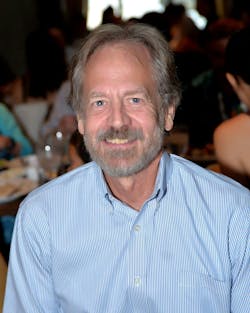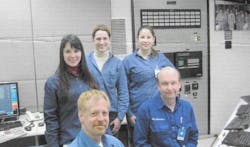Editor’s note: Please join us in congratulating the newest inductees to the 2024 Process Automation Hall of Fame. Joe Weiss is managing partner of Applied Control Solutions Inc., and an ISA99 ICS cybersecurity pioneer and blogger. Mark Darby works extensively with gas refineries and chemical processing plants. He also serves on the advisory board at Texas Tech University. Marcos Peluso served as director of development for fieldbus at Emerson.
Over the past several weeks, they talked to Control about their careers, accomplishments and thoughts on the future of process control and automation. In this series, we tell their individual stories about their past careers and catch up on their present work. We hope you enjoy getting to know these fabulous engineers and learning about their career journeys.
It’s not hard for Mark Darby to pinpoint the moment he knew he wanted to work in process control. During his junior year in the chemical engineering department at Texas Tech University, Darby sat in a process control course and, unlike many engineering students who generally walk away from the course thinking process control isn’t what they want to do, he walked away having found his calling.
“I think it was both the professor and the idea that I could use chemical engineering principles to figure out a control strategy solution,” the Texas native says about that pivotal course.
These days, Darby not only relishes the memory of that engineering course but has taught process control at the University of Houston to a new generation of aspiring engineers, hoping they’ll stick with it as he did. Today, he runs his own successful consultancy, developing strategies from distributed control systems (DCS) to model predictive control (MPC) for refineries and chemical processing plants. He also serves on the chemical engineering advisory board at Texas Tech.
As for his students, he says, “It’s cool to see some of the same enthusiasm I had.” He finds it particularly exciting given the difficulties the process industries have attracting new talent to process control roles.
Darby chalks up the lack of interest by many students to a few factors, but notably the lack of professors at the university level with an industrial background, and the fact that process control courses can be taught too mathematically and a little stale. “I think that turns students off,” he laments.
Perhaps prospective process control gurus will benefit from the tales Darby can tell of his exciting career that took him to many countries around the world. He adds those trips were better because he got to experience those adventures with his wife, who is also a chemical engineer. “We actually met at a gas plant,” he says.
Darby’s road began with Setpoint, which at the time was a new company specializing in computer-based process control and monitoring solutions. He was part of a team that established the company’s European base in the Netherlands, living and working there for four years. His work also took him to Taiwan, Japan and South Korea, as well as locations in South America.
Setpoint was acquired by Aspen Technology in 1997, and Darby spent seven years with the company before deciding it was time to go back to school. For the next six years, he earned his Ph.D., even though it wasn’t his initial plan.
“We’d just adopted our daughter, and while I was on a leave of absence, I decided to take a couple of graduate courses,” he says. “That ultimately led to me getting my Ph.D.”
Starting his own business was made easier, he says, because of the extensive connections he made at Setpoint and AspenTech. Those colleagues are based all over the world, but he’s happy these days to work mainly closer to home in the U.S. Gulf Coast region.
Being stateside also allows Darby and his family to take their RV out and enjoy camping. He also kept his motorcycle and takes it out on the road for occasional trips. And, when his wheels aren’t underneath him, he still enjoys running for exercise.
As he reflects on his career, he also notes the vast changes in industry and technology over that time. Meanwhile, he has a lot more work to do and looks forward to getting out to the next plant to help them solve their process control challenges.








